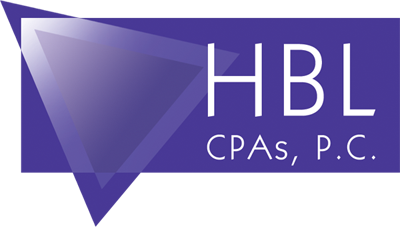When it comes to running a business, taxes are one area that can quickly become overwhelming—and expensive if not handled correctly. Whether you’re a small business owner or managing a larger company, mistakes in tax planning can cost you big time. From missed deductions to IRS penalties, the financial impact can be significant. That’s why having a solid tax plan is essential for keeping more money in your pocket and staying compliant with the law.
Tax planning may not sound like the most exciting part of running a business, but it’s one of the smartest things you can do to protect your profits. Let’s dive into some key tips and expert advice on how to avoid common tax mistakes and set your business up for long-term success.
1. Start Tax Planning Early—Don’t Wait Until Year-End
One of the biggest mistakes businesses make is waiting until the end of the year to think about taxes. By then, it’s often too late to take advantage of many tax-saving opportunities. Effective tax planning should be a year-round activity. This means regularly reviewing your financials, keeping up with changes in tax laws, and making adjustments as needed throughout the year.
By staying proactive, you’ll have more flexibility to make tax-friendly decisions, like timing income and expenses, contributing to retirement plans, and making capital investments when it benefits your tax situation the most.
2. Understand Your Deductions
Deductions are one of the best ways to lower your taxable income, but many business owners don’t take full advantage of them because they simply aren’t aware of what they can deduct. Knowing which expenses are tax-deductible can make a big difference in your final tax bill.
Here are some common deductions to keep in mind:
- Business meals: A portion of meals with clients or during business trips can often be deducted.
- Home office deduction: If you use part of your home exclusively for business, you might qualify for this deduction.
- Office supplies and equipment: From computers to paper clips, all the little things you buy to run your business can be deducted.
- Vehicle expenses: If you use a vehicle for business, you can either deduct actual expenses or take the standard mileage deduction.
- Employee salaries and benefits: Don’t forget that wages, bonuses, and even some employee benefits can be deductible.
Working with a tax professional can help you identify all the deductions available to your business, ensuring you don’t miss out on savings.
3. Stay on Top of Estimated Tax Payments
If your business doesn’t withhold taxes from your income (like sole proprietors or partners in a partnership), you’re required to make estimated tax payments throughout the year. Many businesses get into trouble by underpaying these estimated taxes, which can lead to penalties and interest when tax season rolls around.
Make sure you’re setting aside enough money each quarter to cover your estimated tax payments. This not only helps you avoid penalties but also prevents you from facing a huge tax bill when it’s time to file.
4. Leverage Tax Credits
Tax credits are even better than deductions because they reduce your actual tax bill, not just your taxable income. Unfortunately, many business owners either don’t know about these credits or fail to take full advantage of them.
Here are a few business tax credits to be aware of:
- Research and Development (R&D) Tax Credit: If your business invests in developing new products or processes, you could qualify for this credit.
- Work Opportunity Tax Credit: This credit rewards businesses for hiring individuals from certain target groups, like veterans or long-term unemployed individuals.
- Energy Efficiency Credits: If you’ve made your business more energy-efficient by investing in renewable energy systems or making upgrades to your facilities, you may qualify for various energy tax credits.
These credits can add up to substantial savings, so it’s worth investigating whether your business qualifies.
5. Keep Accurate and Organized Records
One of the simplest ways to avoid tax headaches is to keep thorough and organized records throughout the year. Not only does this make tax preparation easier, but it also ensures that you have all the documentation needed to support any deductions or credits you claim.
Some basic tips for maintaining good records include:
- Use accounting software: This will help automate your bookkeeping and keep everything in one place.
- Save receipts: Whether it’s a digital copy or a physical one, make sure you’re keeping receipts for all business expenses.
- Track mileage: If you’re claiming a vehicle deduction, keep a log of your business miles.
- Separate personal and business expenses: Mixing the two can complicate your tax return and might raise red flags with the IRS.
Being organized will also help you in the unfortunate event of an audit. You’ll be able to provide all the necessary documentation quickly and efficiently, which can make the process go much smoother.
6. Consult a Tax Professional
There’s no doubt that business taxes can be complicated, and while you can handle some aspects on your own, hiring a tax professional can save you time, stress, and money in the long run. A tax expert can help you navigate the complexities of tax law, identify opportunities for savings, and ensure that your tax returns are accurate and complete.
A professional can also help you with tax planning strategies tailored to your specific business, such as determining the best legal structure (LLC, S-corp, etc.) or managing payroll taxes if you have employees. Plus, if you ever find yourself dealing with the IRS, having a professional on your side can make a world of difference.
Tax Planning Pays Off
Expert tax planning isn’t just about avoiding costly mistakes—it’s about making smart financial decisions that benefit your business in the long term. By staying proactive, understanding deductions and credits, and consulting with a tax professional, you’ll not only keep more of your hard-earned money but also set your business up for financial success.
Remember, taxes don’t have to be something you dread. With the right plan in place, you can avoid costly mistakes and take full advantage of opportunities to save. So start planning today, and make tax time a breeze!




